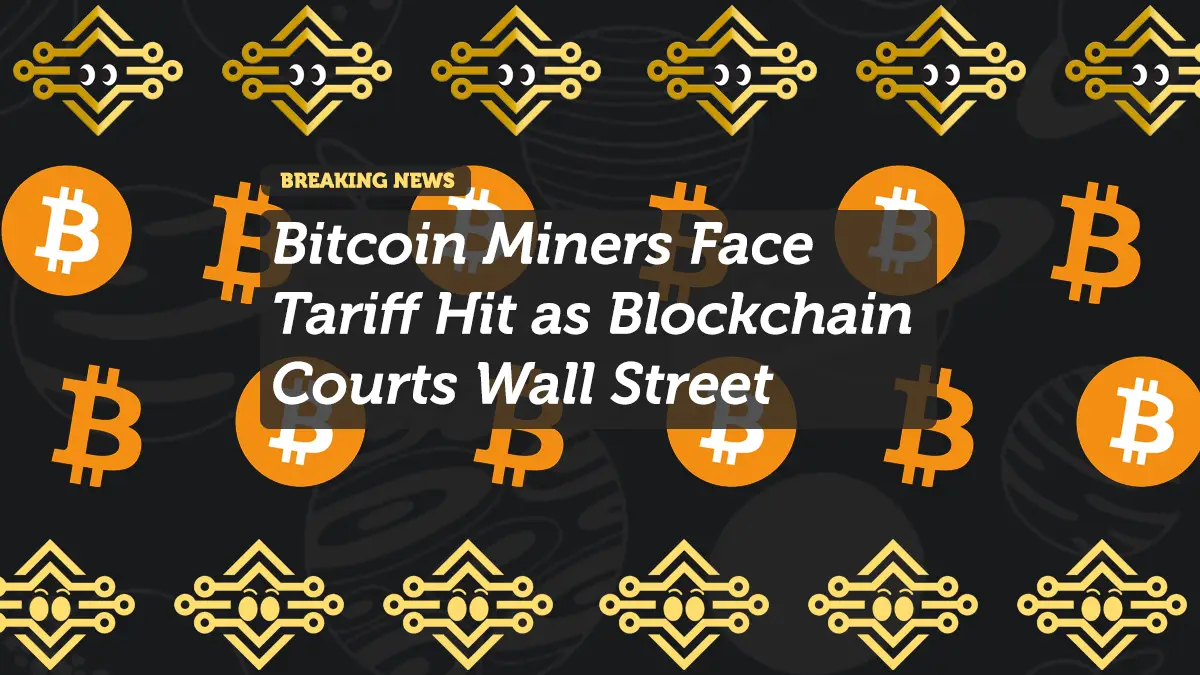
Bitcoin Miners Face Tariff Hit as Blockchain Courts Wall Street
The crypto industry is at a crossroads. On one side, Bitcoin miners face tariff hit on imported hardware, sparking concerns over rising costs. On the other, blockchain adoption is accelerating on Wall Street, signaling a shift in how traditional finance interacts with digital assets.
Bitcoin Miners Grapple With Tariff Pressures
Mining companies rely heavily on specialized equipment like ASICs, most of which are manufactured overseas. Recently announced tariffs on imported mining hardware could increase operational costs significantly.
- Rising Costs: Tariffs may raise the price of new rigs by 15–20%.
- Profit Squeeze: With Bitcoin trading sideways near $113,000, margins are already tight.
- Consolidation Risk: Smaller miners may be forced out, leaving large-scale operators with more control.
This isn’t the first time tariffs have challenged miners, but the timing is critical. With the Bitcoin halving set for 2028, miners are already facing declining rewards. Additional costs could make operations unsustainable for many.
Blockchain Moves Into Wall Street’s Playbook
While miners deal with tariffs, Wall Street is leaning into blockchain adoption. Major banks and asset managers are exploring tokenization, real-time settlement, and blockchain-powered clearing systems.
Recent developments include:
- JPMorgan expanding its Onyx blockchain platform for cross-border transactions.
- BlackRock doubling down on tokenized funds, aiming to bring trillions in traditional assets on-chain.
- Goldman Sachs exploring stablecoin use cases tied to dollar-backed liquidity.
This surge of institutional interest is more than hype—it reflects growing recognition of blockchain’s ability to cut costs, reduce settlement times, and increase transparency.
The Mixed Impact on the Crypto Market
The combination of tariffs on miners and institutional blockchain adoption paints a complex picture.
- On one hand, tariffs slow mining expansion and could limit network decentralization.
- On the other, Wall Street adoption validates blockchain, driving confidence among investors and regulators.
Some analysts suggest these developments could balance each other out: while mining profitability takes a hit, institutional adoption could push long-term demand for Bitcoin and other assets higher.
Investor Takeaways
For investors watching the space, here are key considerations:
- Mining Stocks: Shares of listed miners like Riot Platforms and Marathon Digital could face pressure from higher operating costs.
- Blockchain ETFs: Funds tracking blockchain adoption could see upside from Wall Street partnerships.
- Macro Signals: Regulatory clarity around tariffs and tokenization could shape the next phase of growth.
Key Insight
As Bitcoin miners face tariff hit and costs mount, blockchain’s embrace by Wall Street may provide a silver lining. The industry is evolving, and while miners feel the squeeze, institutional adoption shows that blockchain is here to stay—reshaping both crypto and traditional finance in the process.















